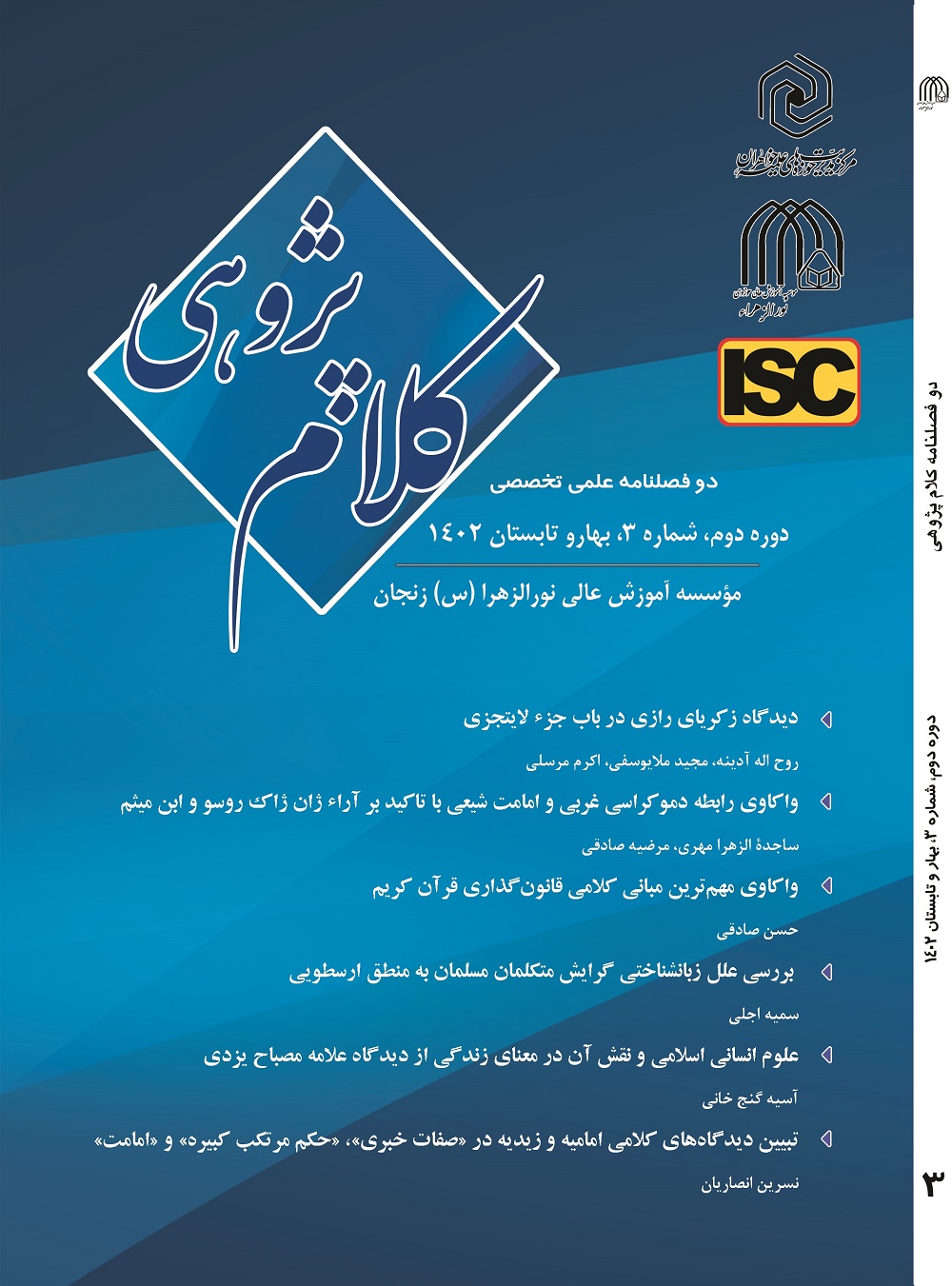نوع مقاله : مقاله پژوهشی
نویسندگان
1 مدرس مدعو دانشگاه زنجان
2 عضو هیئت علمی گروه فلسفه دانشگاه زنجان
چکیده
موضوع این مقاله بررسی سیر تطور اصول دین در کلام معتزله با تکیه بر معناشناسی اصطلاح اصول دین است. تعیین اصول دین از جانب متکلمان مسلمان، اهمیت بسیاری داشته است. اصول دین در مکتب معتزله ابتدا با دو اصل توحید و عدل آغاز شد و سپس در طول تاریخ کلامی این فرقه به دلیل شدت یافتن دعواهای کلامی و گاه سیاسی دچار تحولاتی گشت و سه اصل دیگر منزله بین المنزلتین، وعد و وعید، امر به معروف و نهی از منکر به آن افزوده گردید. پرسش اصلی این تحقیق آن است که چه تغییری در معناشناسی اصطلاح اصول دین در طول تاریخ این فرقه رخ داد که از آن دو اصل اولیه به پنج اصل در انتها منتهی شد؟ این مقاله برای پاسخ به این پرسش با روش توصیفی-تحلیلی به بررسی معنای اصطلاحی اصول دین و سیر تطور آن نزد معتزلیان میپردازد. به نظر میرسد اصطلاح اصول دین در این فرقه بر اساس تعریفی که از ایمان اراده کردهاند به معنای اصول اعتقادی و عملی است که ارکان ایمان محسوب میشوند و عدم پذیرش آنها به معنای خروج از دایرهی ایمان و اسلام است در میان این اصول دو اصل اعتقادی توحید و عدل جزء ارکان اعتقادی اصلی بوده و سه اصل منزله بین المنزلتین، وعد و وعید، امر به معروف و نهی از منکر جزء ارکان اعتقادی و عملی است که فرعی محسوب میشوند و از دل دو اصل پیشین استخراج گردیدهاند.
کلیدواژهها
عنوان مقاله [English]
Investigating the evolution of the principles of religion in the Mu'tazila language based on the semantics of the term "principles of religion".
نویسندگان [English]
- Ali Vakili 1
- Hosein Atrak 2
1 Visiting lecturer at Zanjan University
2 Member of the Faculty of Philosophy, Zanjan University
چکیده [English]
The subject of this article is the examination of the evolution of the principles of religion in Mu'tazilite theology with a focus on the semantics of the term "principles of religion." Determining the principles of religion has been of great importance to Muslim theologians. In the Mu'tazilite school of thought, the principles of religion initially began with two principles: monotheism (Tawhid) and justice ('Adl), and then throughout the history of theological discourse, this sect underwent transformations due to intensified theological and sometimes political disputes. Three additional principles - the intermediacy between intermediates (Manzilah bayn al-manzilatayn), promise and threat (wa'd wa wa'id), enjoining good and forbidding evil (amr bi'l-ma'ruf wa-nahy 'an al-munkar) - were added. The main question of this research is what changes in the semantics of the term "principles of religion" occurred during the history of this sect that led from those initial two principles to the final five? This article, in order to answer this question, employs a descriptive-analytical method to examine the semantic meaning of the term "principles of religion" and its evolutionary trajectory among the Mu'tazilites. It seems that the term "principles of religion" in this sect, based on their definition of faith, refers to the principles of belief and practice that are considered pillars of faith. The non-acceptance of these principles implies departure from the circle of faith and Islam. Among these principles, two belief principles, monotheism and justice, are among the main pillars of belief, while the three principles of intermediacy between intermediates, promise and threat, and enjoining good and forbidding evil are considered subsidiary principles extracted from the heart of the two preceding principles.
کلیدواژهها [English]
- The principles of religion
- Mu'tazilah
- Monotheism
- justice
- dignity between the people
- Qazi Abdul Jabbar

